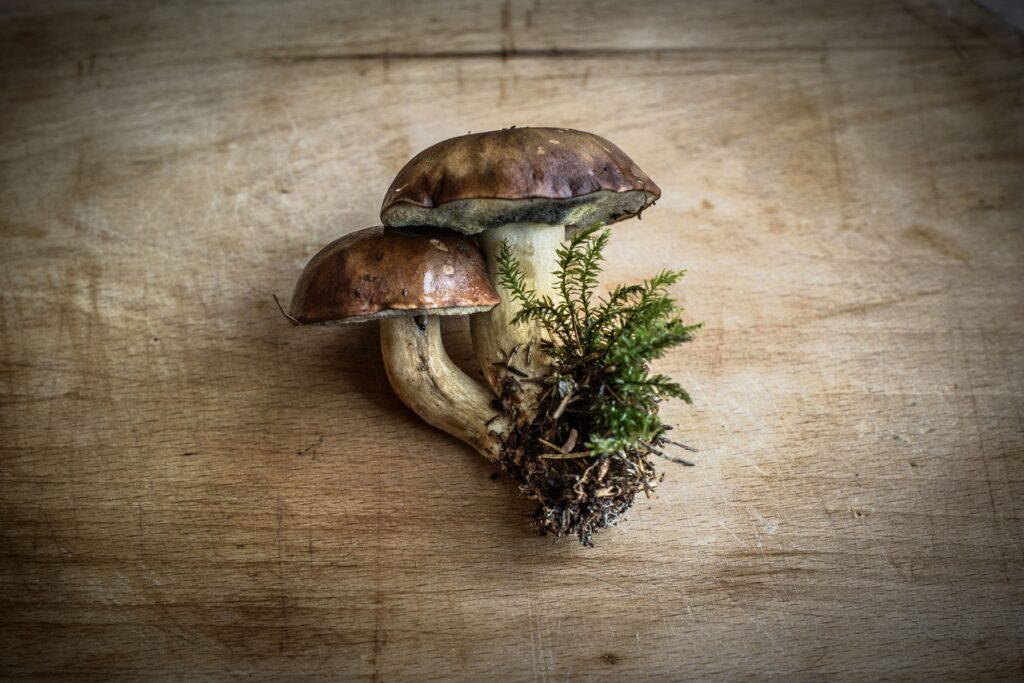Medicinal Mushrooms for Irritable Bowel Syndrome IBS
Mushrooms have been used medicinally for centuries, and there is a growing body of scientific evidence to support their use. While there are many different types of mushrooms with different active compounds, some of the most promising for helping irritable bowel syndrome (IBS) include:
Reishi mushrooms (Ganoderma lucidum) have a long history of use in Traditional Chinese Medicine for a variety of conditions, including gastrointestinal disorders. Modern science has identified several active compounds in reishi mushrooms, including triterpenes and polysaccharides, which have anti-inflammatory, immune-modulating, and antioxidant effects. These properties make reishi mushrooms a promising treatment for IBS, as inflammation and dysregulation of the immune system are thought to play a role in the development and severity of the condition.

Cordyceps mushrooms (Cordyceps sinensis) are another type of mushroom with a long history of use in traditional medicine, particularly in China and Tibet. Cordyceps mushrooms are unique in that they form a symbiotic relationship with insects, and the active compounds are thought to be derived from the host insect. These mushrooms have a wide range of purported health benefits, including improved energy and stamina, increased libido, and better digestion. Cordyceps mushrooms are also thought to have anti-inflammatory and immune-modulating effects, making them another possible treatment for IBS.
Turkey tail mushrooms (Trametes versicolor) are a type of bracket fungi that are commonly found on dead or dying trees. Turkey tail mushrooms are rich in polysaccharides, particularly a type called PSK, which has been shown to have immune-stimulating effects. Turkey tail mushrooms also contain antioxidants and anti-inflammatory compounds, making them another possible treatment for IBS.
Lion’s mane mushrooms (Hericium erinaceus) are white, spiny mushrooms that are found growing on dead or dying trees. Lion’s mane mushrooms are rich in compounds called hericystins, which have been shown to have neuroprotective and anti-inflammatory effects. Lion’s mane mushrooms also contain compounds that stimulate nerve growth factor (NGF), which is important for maintaining the health of the gastrointestinal tract. These properties make lion’s mane mushrooms a promising treatment for IBS.
Maitake mushrooms (Grifola frondosa) are a type of polypore mushroom that is native to Japan and North America. Maitake mushrooms are rich in a type of polysaccharide called beta-glucan, which has immune-modulating effects. Maitake mushrooms also contain antioxidants and anti-inflammatory compounds, making them another possible treatment for IBS.
Shiitake mushrooms (Lentinula edodes) are a type of edible mushroom that is native to East Asia. Shiitake mushrooms are a rich source of nutrients, including proteins, vitamins, minerals, and dietary fiber. They also contain compounds called lentinan and eritadenine, which have immune-stimulating and cholesterol-lowering effects, respectively. Shiitake mushrooms’ anti-inflammatory effects make them a promising treatment for IBS.
While there is still much to learn about the potential health benefits of mushrooms, the above-mentioned varieties show promise for the treatment of IBS. If you are considering using mushrooms to treat IBS, it is important to speak with a qualified healthcare provider to ensure safety and efficacy.


Recent Comments